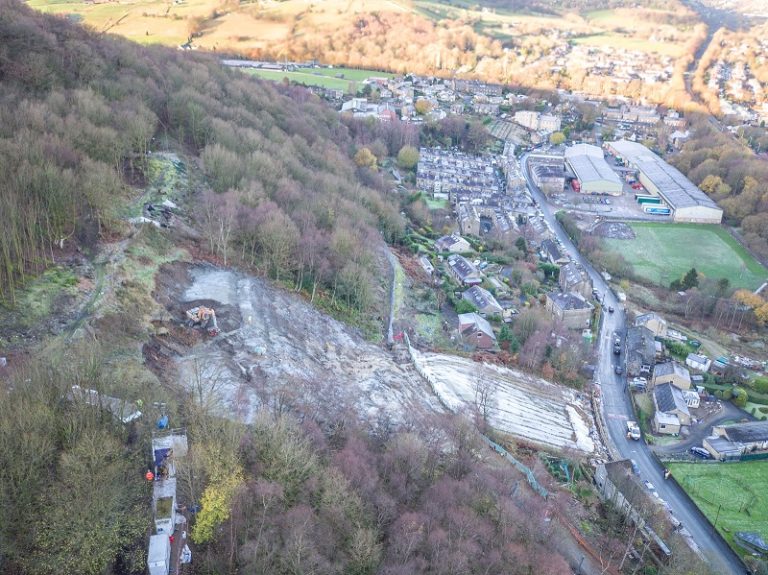Specialist ground remediation and soil stabilisation company Deep Soil Mixing Ltd has helped with the completion of a £6.5 million project to strengthen the hillside, improve drainage and boost flood resilience at Scout Road in Mytholmroyd, West Yorkshire, for client Calderdale Council. Deep Soil Mixing Ltd used their controlled soil mixing technique to transform the challenging site, using Deep Soil Mixing Ltd’s Allu bucket on a 20-tonne excavator. They stabilised the soil and locked in the asbestos fibres contained in the ground, which proved to be an economical and practical solution. “Soil Mixing has proved to be an ideal solution for this slope stabilisation project, but it can also be used in a wide variety of other applications. In addition to the environmental advantage, stabilisation of soft soils by adding binders to reduce settlements and/or improve the stability of the land can be both a quick and cost-effective solution compared to some traditional methods including piling,” said Colin Critchlow, director at Deep Soil Mixing Ltd. The company also installed a King Post Wall at the bottom of the affected area to create an anchor point for the stability of the slope. This was to ensure that any slips during the soil stabilisation works on the upper slope would be contained and would not affect the surrounding buildings and services. It also created a stable working platform from which the mixing operation could commence. In order to work with and dispose of asbestos to commence work on thee 3,500 m2 site, the workforce was equipped with full face masks and disposable clothes, as well as decontamination when exiting the working area. The project proved to be challenging from both a technical and health and safety perspective. “The completion of work at Scout Road is a key milestone in Calderdale’s recovery from the floods. Along with borough-wide flood alleviation schemes and a range of natural flood management projects, it’s a powerful example of our determination to build resilience against extreme weather events. It has been carried out to the highest possible standard and many of the techniques used have shown real innovation, leading to improved protection for over 80 nearby homes and around 30 non-residential properties,” concluded Cllr Barry Collins, Calderdale Council’s cabinet member for regeneration and economic strategy.





